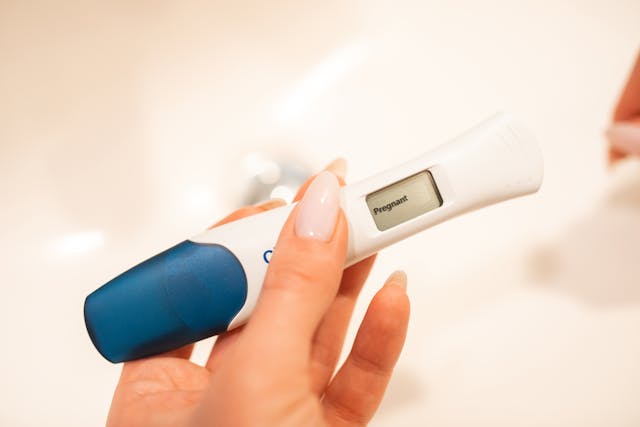Heartburn is a common complaint during pregnancy, especially during the second and third trimesters. Many women also suffer from acid reflux and indigestion during this time. Here are some tips to reduce heartburn and indigestion in pregnancy.
Heartburn is an uncomfortable or burning sensation behind the breastbone that often occurs after eating or drinking. You may also experience the taste of stomach acid or vomit rising in the back of your throat due to acid reflux.
These symptoms are not a reason to worry, but you should make every attempt to lessen your discomfort. The long-term effects of heartburn and acid reflux can cause slight to moderate damage to your esophagus.
Watch What You Eat
Certain foods are known to cause heartburn. Do your best to stay away from greasy, fatty, or spicy foods. You may also need to avoid coffee and other caffeinated drinks, as well as foods that contain citrus fruits, tomatoes, garlic, onions, or chocolate.
If you find that any of these foods aggravate your heartburn, cut them out of your diet completely, at least until your heartburn is under control. Overall, staying away from offending foods will help reduce heartburn and indigestion in pregnancy.
Eat Smaller Portion Sizes
Prevention is the best medicine when dealing with the discomforts of heartburn. Do not lay down or go to bed immediately after eating. You should also eat smaller portions and not eat too quickly, as this could aggravate your already sensitive digestive system.
Stress also plays a significant role in the occurrence of heartburn. Try to reduce the stress in your life as much as possible.
Use Antacids
You should always try to prevent indigestion without using drugs when you are pregnant. If nothing else proves to be effective, most antacids are considered relatively safe for use during pregnancy. Other heartburn medications like Pepcid and Zantac are class B drugs, which means they are safe for animals, though scientists have not studied women.
But there has been a lot of controversy around Zantac recently, as the Food and Drug Administration (FDA) determined that the drug had “unacceptable” levels of probable cancer-causing impurities.
The FDA determined that a single Zantac tablet has 3,171 times more nanograms of NDMA (nitrosodimethylamine, a potential carcinogen) than the FDA’s recommended daily limit.
Natural Antacids
Natural remedies are available for treating heartburn and indigestion. You can purchase Papaya enzymes in most stores that sell vitamins. These chewable tablets taste pleasant and can be taken at mealtimes to aid in the digestion of food.
In pregnancy, heartburn, indigestion, and acid reflux tend to be mild and temporary. Any severe or unusual symptoms could be a sign of a severe problem. Contact your care provider if you experience heartburn that is unaffected by antacids or frequently wakes you up at night, troubles swallowing, weight loss, black stools, or if you spit up blood.





2 thoughts on “Tips to Reduce Heartburn and Indigestion In Pregnancy”
Comments are closed.